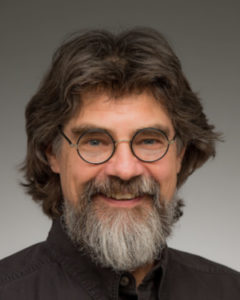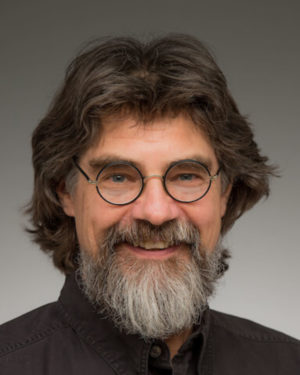Podcast: Play in new window | Download (Duration: 28:17 — 19.6MB) | Embed
Subscribe: Apple Podcasts | Spotify | Amazon Music | Android | Pandora | iHeartRadio | JioSaavn | Podchaser | Gaana | Podcast Index | Email | TuneIn | Deezer | Anghami | RSS | More

Episode 11 – Ascetical Struggle and a Mystical Joy – Pathway to Sacred Mysteries with Dr. David Fagerberg, Ph.D.
Dr. David Fagerberg and Kris McGregor explore a dense definition of liturgy as “the resis of the Trinity canonically extended to invite our synergistic ascent into deification”. Dr. Fagerberg explains that liturgy is not just a human ritual but the active work of God in the cosmos, drawing participants into the divine life. Touching on various aspects of liturgical participation, including the struggle many people feel in engaging with liturgy due to distractions or personal preferences, Dr. Fagerberg advises approaching liturgy as a sacred “tryst” with God, a meeting between divine and human lovers, where the focus should be on prayer rather than criticism.
They discuss the concept of liturgy as a transformative process that requires both God’s grace and human cooperation. Dr. Fagerberg contrasts this with an automatic, thoughtless participation, urging a more intentional and spiritually prepared engagement. He introduces the idea of liturgical asceticism, where one develops capacities for deeper liturgical participation over a lifetime, akin to preparing for the “eighth day” or the eschatological fulfillment in the resurrection.
This goes into the notion of liturgical time, distinguishing between “Kronos” (ordinary time) and “Kairos” (sacred time), and how liturgy allows worshippers to step into this sacred time, experiencing a reality larger than the temporal world. They discuss how different people, like theologians or laypersons, may apprehend liturgy differently, but all are invited to enter into its mystery with a heart prepared by spiritual practices, such as contemplation and asceticism.
Here are some of the topics explored in this episode:
- The definition of liturgy: Liturgy is the perichoresis of the Trinity kenotically extended to invite our synergistic ascent into deification.
From the discussion with Dr. Fagerberg:
“This is why it’s important for worshiping on Sunday, the Lord’s Day for the Lord’s people in the Lord’s house at the Lord’s table. Sunday is this eighth day, the day of the resurrection. After six days of creation, got rested on the seventh, and when humanity fell into sin, God had to act again. So Sunday, the day of resurrection, is like one more day in the Book of Genesis being added as an appendix. And Taft says to anyone beginning the study of Sunday, “The initial impression is one of confusion.” Sunday is the first day, the day of creation, the day of light, the day of the new time. I think it’s just named the cosmic dimensions of Sunday, but it’s also the last day, the eighth day, the day beyond the days, the day of Jubilee, the day of the end time.
Now he has named the eschatological dimensions of Sunday. It’s the day of the resurrection, the day of the post-resurrection appearances and meals. Watch for that in the scripture readings eight days later on Sunday. It’s the day of the descent of the Spirit and the day of the ascension. These are the historical Jesus days.
And then, he gives finally the ecclesiological church meanings. The day of the assembly, the day of the Eucharist, the day of baptism, the day of ordinations. Until one asks, “Is there anything Sunday doesn’t mean?” And the answer of course, is no. For the early Church Sunday was indeed everything. The symbolic day, a sign of the time of the church between ascension and parousia, the time in which we are living now, it’s the day symbolic of all days for… And here’s the quote, which I stumbled on in our earlier conversation so I can slip it in here. “It’s a day symbolic of all days for the purpose of all Christian liturgy is to express in a ritual moment that which should be the basic stance of every moment of our lives.”
Once a year you celebrate a birthday in a ritual way, but that doesn’t mean you don’t love your kid for the other 364 days. Once a week, you enter into this Eucharistic uplift and twist with God, but that doesn’t mean you forget about him for the other days of the week. What you do on Sunday morning should be an expression of the basic stance of every day, of every hour, of every moment. Well, that seems to me like an ascetical struggle and a mystical joy.”
Discerning Hearts Reflection Questions
- Understanding Liturgy’s Divine Nature: How does recognizing liturgy as the active work of God in the cosmos, rather than a mere human ritual, change your approach to participating in it?
- Entering Sacred Time: How can you become more aware of the transition from “Kronos” to “Kairos” during the liturgy, and what practices might help you prepare for this sacred encounter?
- Prayerful Participation: In what ways can you focus more on prayer and less on criticism during liturgical celebrations, especially when distractions arise?
- Liturgy as a Tryst with God: How does viewing liturgy as a meeting between divine and human lovers influence your relationship with God during the Mass?
- Developing Liturgical Capacities: What steps can you take to cultivate the spiritual capacities needed for a deeper, more transformative participation in the liturgy?
- Balancing Grace and Cooperation: How do you understand the balance between God’s grace and your own cooperation in the liturgical experience, and how can this understanding enhance your spiritual life?
- The Role of Asceticism in Liturgy: How might embracing a more ascetical approach to your spiritual life prepare you for a fuller participation in the liturgy and the life of the Church?
For more podcast episodes of this series visit the Pathways to Sacred Mysteries w/Dr. David Fagerberg page
David W. Fagerberg is Professor in the Department of Theology at the University of Notre Dame. He holds masters degrees from Luther Northwestern Seminary, St. John’s University (Collegeville), Yale Divinity School, and Yale University. His Ph.D. is from Yale University in liturgical theology.
Fagerberg’s work has explored how the Church’s lex credendi (law of belief) is founded upon the Church’s lex orandi (law of prayer). This was expressed in Theologia Prima (Hillenbrand Books, 2003). He has integrated into this the Eastern Orthodox understanding of asceticism by considering its role in preparing the liturgical person. This was treated in On Liturgical Asceticism (Catholic University Press, 2013). And these two themes come together in Consecrating the World: On Mundane Liturgical Theology (Angelico Press, 2016).
He also has an avocation in G. K. Chesterton, having published Chesterton is Everywhere (Emmaus Press, 2013) and The Size of Chesterton’s Catholicism (University of Notre Dame, 1998).






